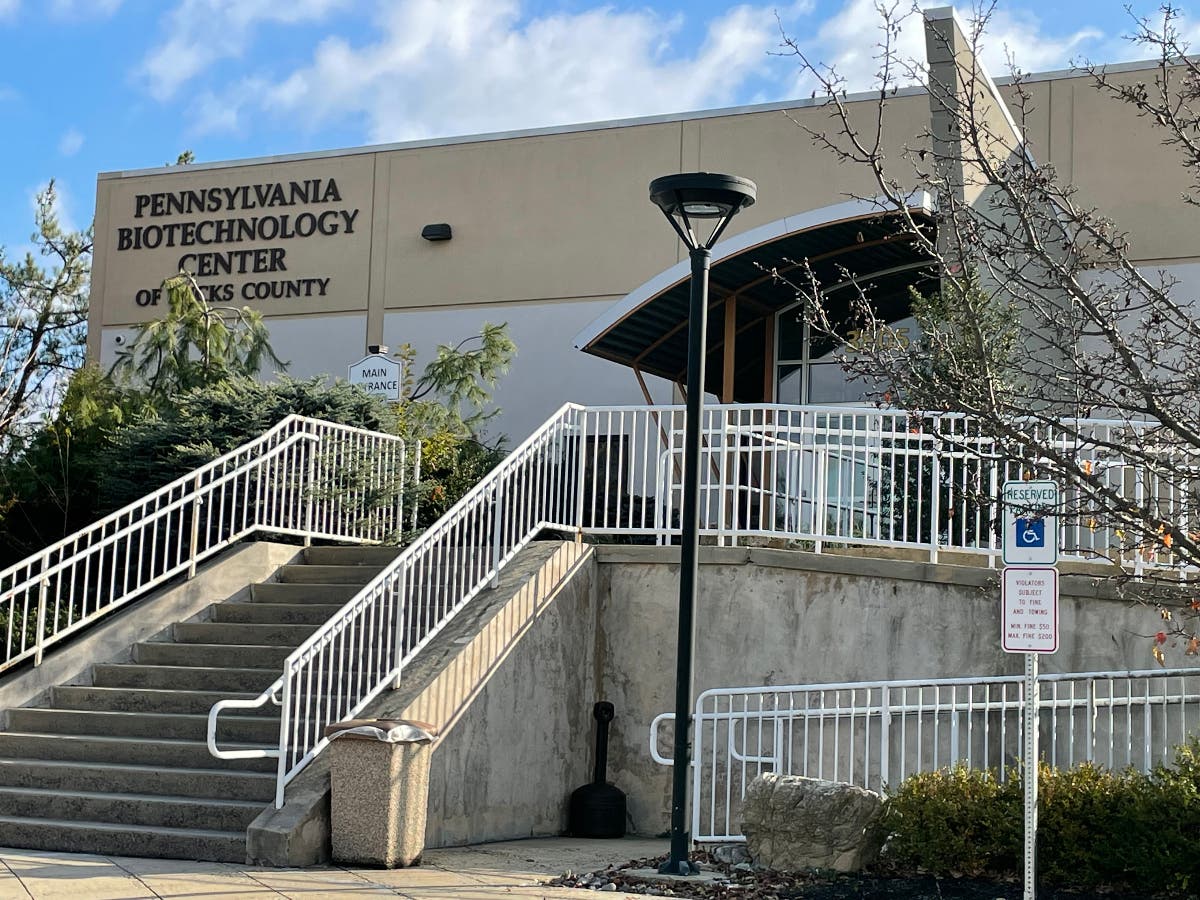Business & Tech
Doylestown Biotech Co. Awarded $1.49M Michael J. Fox Foundation Grant
Kannalife Sciences Inc. will use the funding to advance its Parkinson's Disease research.

DOYLESTOWN, PA — Kannalife Sciences, Inc., a pioneering biotech company dedicated to developing small-molecule therapeutics targeting inflammation, has been awarded $1.49 million from The Michael J. Fox Foundation for Parkinson’s Research (MJFF).
The grant will support preclinical research of Kannalife’s lead therapeutic KLS-13019 by investigating its effects on neuroinflammation and mitochondrial dysfunction, which are implicated in Parkinson’s disease (PD).
Parkinson’s disease is the fastest-growing neurodegenerative movement disorder affecting up to two percent of those aged 60 years or older.
Find out what's happening in Doylestownwith free, real-time updates from Patch.
Douglas Brenneman, Ph.D., chief pharmacologist at Kannalife Sciences and principal investigator of the study, expressed gratitude for the foundation’s support.
“We are honored to receive this grant support from The Michael J. Fox Foundation, a leading organization dedicated to accelerating the development of improved therapies for Parkinson’s disease," he said. "We are confident that we can make meaningful progress toward this goal and, ultimately, improve the lives of patients living with Parkinson’s.”
Find out what's happening in Doylestownwith free, real-time updates from Patch.
Kannalife Sciences, located at the Pennsylvania Biotechnology Center (PABC) in Buckingham is leveraging its globally patented technology into neuroinflammatory disorders targeting the novel G protein-coupled receptor (GPCR), GPR55 and the NLRP3 inflammasome. Advanced preclinical research and IND enabling studies to date have validated KLS-13019’s effects on biological targets in the mitochondria including mNCX-1, with the aim of addressing unmet needs in inflammatory diseases. KLS-13019’s promising preclinical results in models of neuroinflammation and oxidative stress, portend to be key factors of neurodegeneration in Parkinson’s disease.
“We look forward to seeing the results of Kannalife Sciences’ innovative work on KLS-13019," said Jessica Tome Garcia, Ph.D., associate director of research programs at MJFF. "This funding highlights the foundation’s commitment to advancing Parkinson’s therapeutic research by addressing neuroinflammation and mitochondrial dysfunction, two key factors in the disease.”
Dr. Brenneman added, “This grant represents a significant milestone in our research efforts. Special thanks to the whole team at Kannalife, especially Dean Petkanas for his persistence and dedication in mobilizing KLS-13019 into a potential therapeutic for the treatment of Parkinson’s Disease. I also want to thank our research partners Prof. Dr. Med. Chi Wang Ip of Universitätsklinikum Würzburg, Tom H. Johnston, Ph.D. of Atuka, Inc. and James P. Koprich, MA, Ph.D., for taking the time and effort to put an outstanding study protocol together for our research program in PD.”
Through research efforts with MJFF and other partners, the company aims to accelerate the development of KLS-13019 and pave the way for novel therapeutic interventions in Parkinson’s disease and beyond.
KLS-13019 is currently undergoing small pre-clinical model efficacy, chemical scale-up, and toxicology studies supported by an STTR Phase 2 study grant from the National Institute of Neurological Disorders and Stroke (NINDS) of the National Institutes of Health (NIH) under the HEAL Initiative. Successful completion of these IND enabling studies will allow initiation of human clinical studies for the treatment of chemotherapy-induced peripheral neuropathy (CIPN). This financial support underscores the broad scientific validation of this promising therapeutic agent.
Get more local news delivered straight to your inbox. Sign up for free Patch newsletters and alerts.